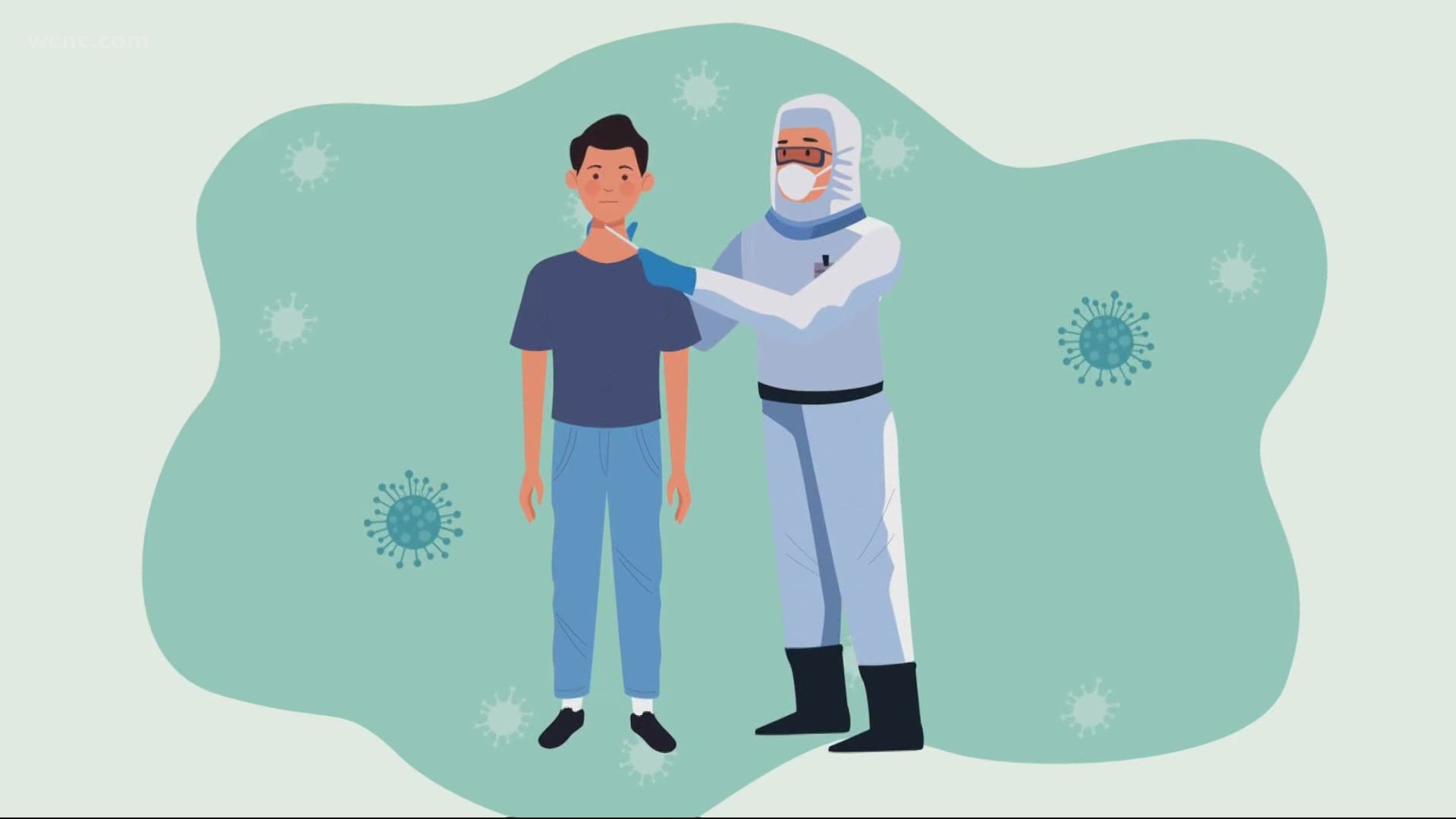CHARLOTTE, N.C. — Vaccinations are ramping up, and there are more movements towards getting back to normal life. Health officials have said COVID-19 testing and contact tracing will still be important as that happens.
But are there situations when a test might be misleading about a person's infectiousness?
THE QUESTION
Is it possible to test positive for COVID-19 long after being contagious?
THE ANSWER
Yes. In fact, the Centers for Disease Control and Prevention states it's possible for testing to pick up the virus weeks after first getting ill.
Dr. David Priest, an infectious disease specialist with Novant Health weighs in on how that can happen.
"PCR testing is really sensitive," Priest said.
That sensitivity can lead to faulty assumptions about a person's contagiousness.
"People, after about 10 days, are no longer contagious," Priest said. "mRNA from the virus can stay in your nasopharynx for weeks on end, even when you're not contagious."
The CDC's research on that takes into account its quarantine guidelines. The agency states that someone with a mild or moderate case of COVID-19 stops being infectious no more than ten days after symptoms start. For someone with a more severe case, that duration is 20 days.
However, the CDC writes that those who recover and lose their contagiousness could still shed the virus up to three months after they first got sick.
It's one reason why the agency recommends employers go by "a symptom-based rather than test-based strategy for ending isolation," with the goal of not needlessly sidelining people from work and other duties.
"Our message to our clinicians is: Don't keep repeating tests. There may be specific clinical scenarios where that has to be done, but for the most part, once you have a positive test don't keep repeating it," Priest said.

